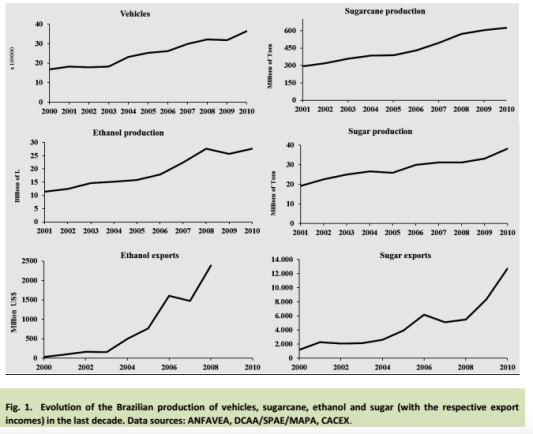The journal Tropical Conservation Science in a study investigates the effects of the expansion of sugarcane production for export and what are the measures to diminish the effects on the ecosystem of the Atlantic Forest.
This material and others you find in our Journal and Article Suggestions!

Bernard, E., Melo, F. P. L. and Pinto, S. R. R. 2011. Challenges and opportunities for biodiversity conservation in the Atlantic Forest in the face of bioethanol expansion. Tropical Conservation Science Vol. 4 (3): 267-275. Available online: www.tropicalconservationscience.org or directly here.
Brazil is the world’s largest producer of ethanol from sugarcane, an alternative to gasoline. Large companies, including international oil companies, are aware of the potential of Brazilian ethanol and are investing in the production and expansion of the country’s sugarcane plantations. The growth of the ethanol market and the fulfillment of its demand impose some conservationist challenges to Brazil. The market points to the expansion of the area planted with sugarcane, but this could be extremely detrimental to the conservation of the rest of the biodiversity of the Brazilian Atlantic Forest. The impact of this expansion will be even more severe in the states of Alagoas, Pernambuco, Paraíba and Rio Grande do Norte, the country’s second largest sugar and ethanol producing region, and one of the most threatened portions of the world’s tropical forests (only 12% , ~ 1% legally protected), with most of the forest fragments smaller than 100 ha and several endemic species in the imminence of extinction. We argue here that instead of expanding the planted area, increased productivity should be the most logical and environmentally sound solution for the region. Furthermore, we indicate that the current challenge is to increase the number of sugar-alcohol companies that adopt best environmental management practices and turn these programs into real opportunities for the restoration of biodiversity and environmental services in an ecosystem in imminent collapse. We strongly recommend that sugarcane mills should take a step further and at least ensure the protection of the remaining habitats beyond what is established by current environmental legislation.

